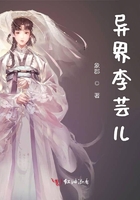In "Every Man in His Humour" there is certainly a caricature of Samuel Daniel, accepted poet of the court, sonneteer, and companion of men of fashion. These men held recognised positions to which Jonson felt his talents better entitled him; they were hence to him his natural enemies.
It seems almost certain that he pursued both in the personages of his satire through "Every Man Out of His Humour," and "Cynthia's Revels,"Daniel under the characters Fastidious Brisk and Hedon, Munday as Puntarvolo and Amorphus; but in these last we venture on quagmire once more. Jonson's literary rivalry of Daniel is traceable again and again, in the entertainments that welcomed King James on his way to London, in the masques at court, and in the pastoral drama. As to Jonson's personal ambitions with respect to these two men, it is notable that he became, not pageant-poet, but chronologer to the City of London; and that, on the accession of the new king, he came soon to triumph over Daniel as the accepted entertainer of royalty.
"Cynthia's Revels," the second "comical satire," was acted in 1600, and, as a play, is even more lengthy, elaborate, and impossible than "Every Man Out of His Humour." Here personal satire seems to have absorbed everything, and while much of the caricature is admirable, especially in the detail of witty and trenchantly satirical dialogue, the central idea of a fountain of self-love is not very well carried out, and the persons revert at times to abstractions, the action to allegory. It adds to our wonder that this difficult drama should have been acted by the Children of Queen Elizabeth's Chapel, among them Nathaniel Field with whom Jonson read Horace and Martial, and whom he taught later how to make plays. Another of these precocious little actors was Salathiel Pavy, who died before he was thirteen, already famed for taking the parts of old men. Him Jonson immortalised in one of the sweetest of his epitaphs. An interesting sidelight is this on the character of this redoubtable and rugged satirist, that he should thus have befriended and tenderly remembered these little theatrical waifs, some of whom (as we know) had been literally kidnapped to be pressed into the service of the theatre and whipped to the conning of their difficult parts. To the caricature of Daniel and Munday in "Cynthia's Revels" must be added Anaides (impudence), here assuredly Marston, and Asotus (the prodigal), interpreted as Lodge or, more perilously, Raleigh. Crites, like Asper-Macilente in "Every Man Out of His Humour," is Jonson's self-complaisant portrait of himself, the just, wholly admirable, and judicious scholar, holding his head high above the pack of the yelping curs of envy and detraction, but careless of their puny attacks on his perfections with only too mindful a neglect.
The third and last of the "comical satires" is "Poetaster," acted, once more, by the Children of the Chapel in 1601, and Jonson's only avowed contribution to the fray. According to the author's own account, this play was written in fifteen weeks on a report that his enemies had entrusted to Dekker the preparation of "Satiromastix, the Untrussing of the Humorous Poet," a dramatic attack upon himself. In this attempt to forestall his enemies Jonson succeeded, and "Poetaster" was an immediate and deserved success. While hardly more closely knit in structure than its earlier companion pieces, "Poetaster" is planned to lead up to the ludicrous final scene in which, after a device borrowed from the "Lexiphanes" of Lucian, the offending poetaster, Marston-Crispinus, is made to throw up the difficult words with which he had overburdened his stomach as well as overlarded his vocabulary. In the end Crispinus with his fellow, Dekker-Demetrius, is bound over to keep the peace and never thenceforward "malign, traduce, or detract the person or writings of Quintus Horatius Flaccus [Jonson] or any other eminent man transcending you in merit." One of the most diverting personages in Jonson's comedy is Captain Tucca. "His peculiarity" has been well described by Ward as "a buoyant blackguardism which recovers itself instantaneously from the most complete exposure, and a picturesqueness of speech like that of a walking dictionary of slang."It was this character, Captain Tucca, that Dekker hit upon in his reply, "Satiromastix," and he amplified him, turning his abusive vocabulary back upon Jonson and adding "An immodesty to his dialogue that did not enter into Jonson's conception." It has been held, altogether plausibly, that when Dekker was engaged professionally, so to speak, to write a dramatic reply to Jonson, he was at work on a species of chronicle history, dealing with the story of Walter Terill in the reign of William Rufus. This he hurriedly adapted to include the satirical characters suggested by "Poetaster," and fashioned to convey the satire of his reply. The absurdity of placing Horace in the court of a Norman king is the result.















